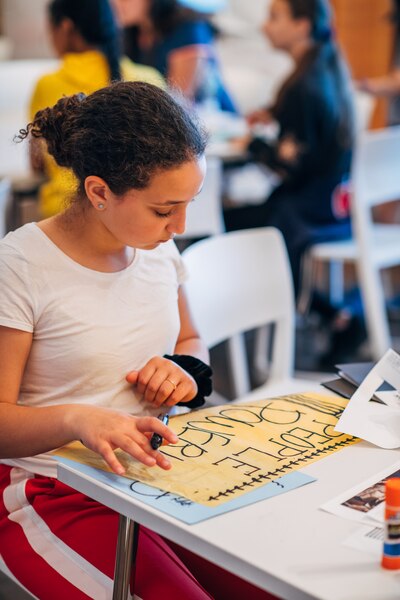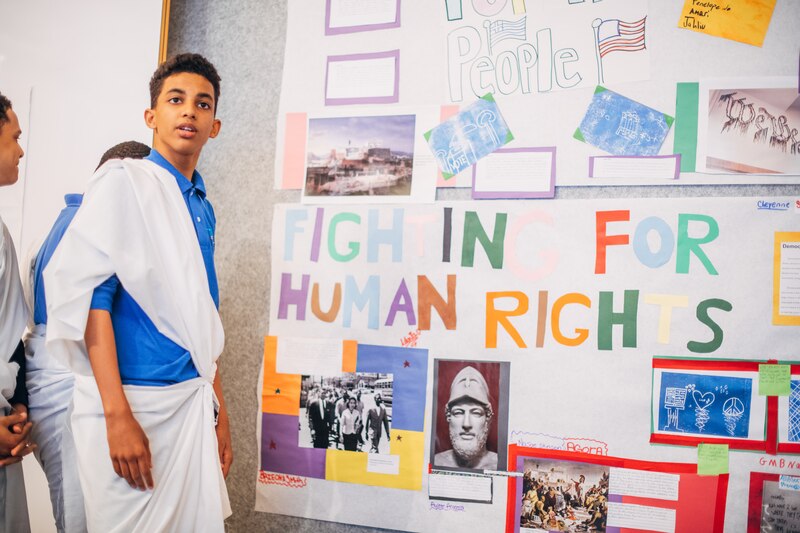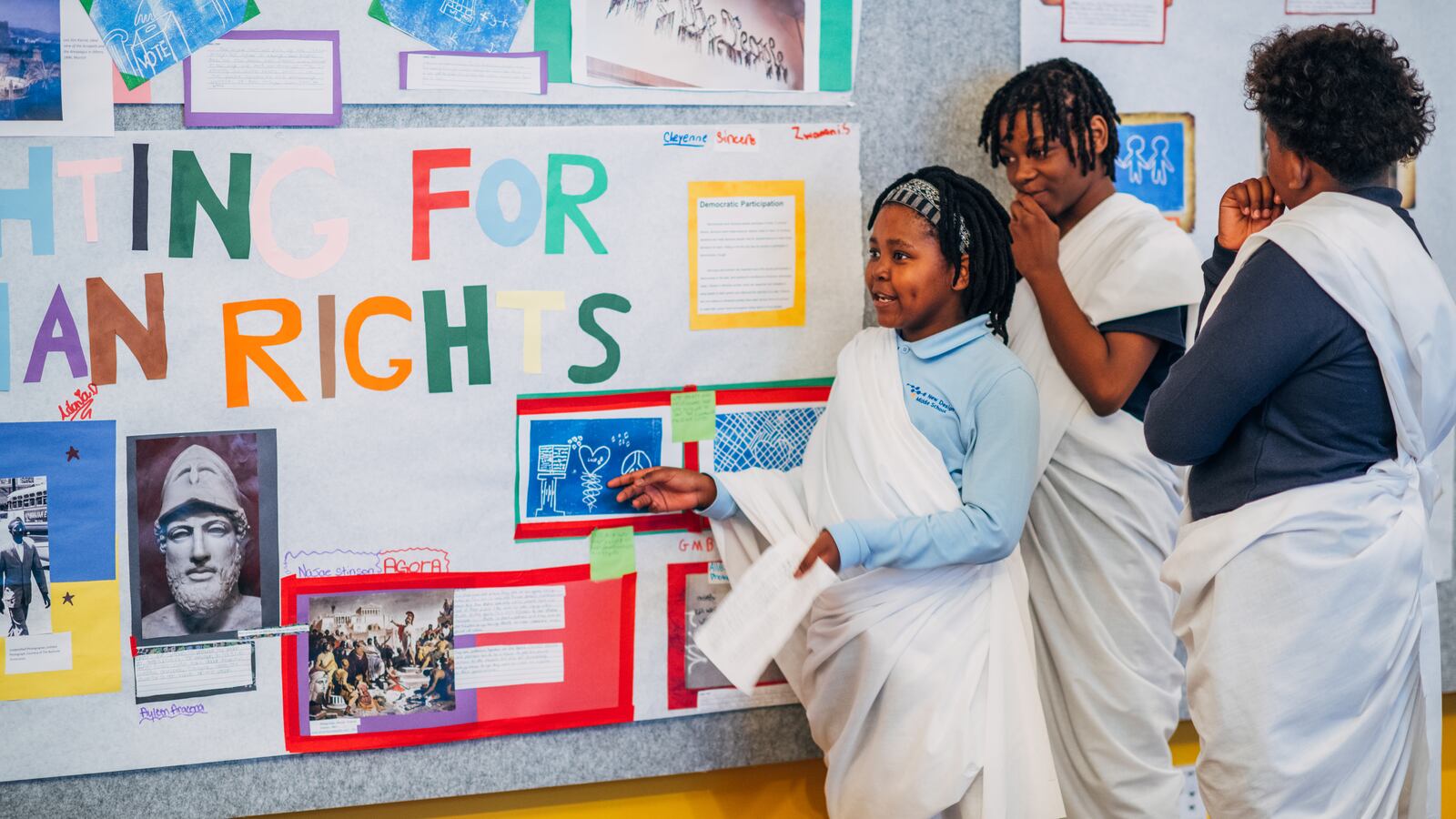At a time of national political discord and social upheaval, educators are faced with the daunting task of teaching remotely while simultaneously addressing major concerns about modern American society with their students. Now more than ever, providing young people with a thorough understanding of the roots and evolution of America’s history and government could not be more urgent.
The Academy for American Democracy is here to help! The Academy for American Democracy is the newest educational program at the New-York Historical Society, the oldest museum in New York. The Academy for American Democracy is a free residency program that immerses students in an intensive study of the history of democracy, beginning in ancient Athens before moving to the Founding Era of the United States and landing in the present day. This residency program is specifically designed for students in sixth to ninth grades, as those are the grades when students in the United States typically study the ancient world.

Teacher Carol S.’s students participated in the program remotely. She said, “My students knew that one of the reasons that ancient Athens was special was that it had a democracy, but the students didn’t really know what this meant. The in-depth explanation, paired with some of the ‘characters’ and ‘setting’ through various works of art, helped students to construct a mental image of where, when, and how democracy was happening. The term ‘democracy’ is also thrown around a lot, so students have heard it and think they know what it means, but it’s very superficial and they don’t have a sense of what the alternatives are. I think that through this work, students can begin to understand that democracy is a work in progress, not just a button you click on!”
Our program is designed to encourage students and educators to critically examine our complicated, collective past while seeking to build a more equitable future. We rely on inquiry-based instruction so that students
- Feel empowered to share their own ideas.
- Are able to sharpen their analytical skills.
- Understand the value of history and civic participation.
- Can continue to develop a love for learning.
In addition to rich discussion, students are able to creatively synthesize all they’ve learned through digital art-making, including podcasts, zines, songs, and poems. We believe that the intersection of art, history, and technology enhances students’ critical thinking skills and encourages innovation. By the end of the residency, students are able to draw parallels between ancient Athenian and early American democracy and the world today.
Another teacher, Alma Rodriguez, remarked, “We (students and myself) never really equated theater with activism, much less ancient Athenian theater! It gave us a new appreciation for the ancients and provided an avenue to discuss the current climate of activism and protests.”

Educators also benefit from the Academy for American Democracy through our complementary professional development workshops. In these communities they learn from Columbia University professors to explore democracy and collaborate on how to incorporate these concepts with their learners.
COVID has changed the way we teach, and schools will likely continue to navigate hybrid learning models for years to come. In an effort to offer equitable access, our free digital resources are easily accessible here to aid teachers and students in their study of democracy. Check out this example below:
Want to take part? The Academy for American Democracy is open to all students, whether in a traditional school or homeschool. To participate, students must currently be in sixth to ninth grade. Applications for the spring and summer are still open and are accepted on a rolling basis. To apply for your class or school, click here. To apply for your homeschoolers, click here. For general information about the Academy, visit us here or email us at aad@nyhistory.org.
Chalkbeat’s editorial staff had no role in writing or preparing this paid content. Learn about our sponsored content policy.


